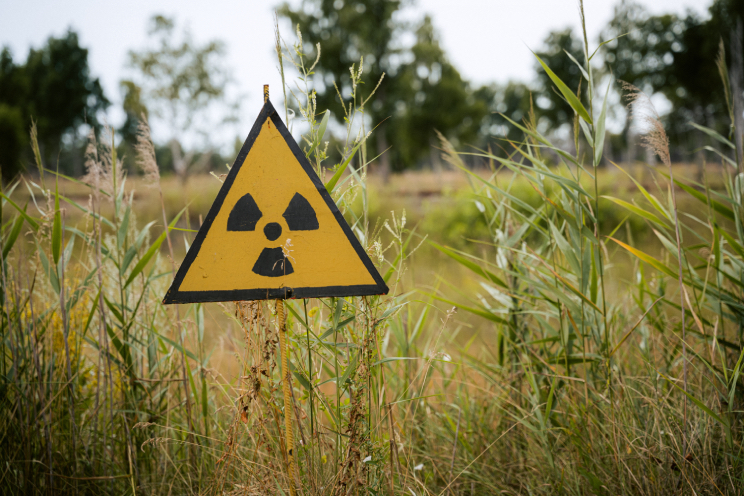Łukašenka tells officials to step up efforts to reclaim Chernobyl-contaminated land

April 25, Pozirk. One day before the 39th anniversary of the Chernobyl nuclear accident, Alaksandar Łukašenka has urged his officials to step up efforts to decontaminate affected areas and take the land back into agricultural production.
“What have we been doing during these 30 years if 900,000 [people] still live in the contaminated territory?” he questioned officials at a government conference in Minsk.
He noted that no one should live in the contaminated territory.
Anatol Sivak, a deputy prime minister, said that the government had spent about $20 billion for five programs to mitigate the disaster’s consequences and planned to spend additional $2.5 billion in the next five years.
More than 930,000 people, including 181,000 children, lived in 1,859 settlements on January 1 in Belarus’ contaminated areas, Kaciaryna Šmialova, an official with the Ministry of Emergency Management, has told journalists on April 22.
Thirty-nine years after the Chernobyl disaster, 60 percent of cesium-137 and 62 percent of strontium-90 have decayed, she said, noting that about 25.000 square kilometers or 12 percent of Belarus, remained contaminated.
Belarus can reclaim most of the contaminated areas, except for the territories of the Palesse State Radiation and Ecological Reserve, which will remain a scientific test ground, the official said.
The No. 4 reactor exploded at the Chernobyl Nuclear Power Plant in the early hours of April 26, 1986.
Although the plant is located in Ukraine, about 70 percent of the radioactive fallout landed in Belarus, heavily contaminating one-fourth of the country, one-fifth of its agricultural land and affecting at least 7 million people.
More like this: Nearly 40 years after nuclear disaster, radioactive substances still dangerous, scientist says
- EconomyŁukašenka demands action to stop industrial decline, clear out inventoriesThe material is available only to POZIRK+
- EconomyAgricultural production up 3.5 percent in JanuaryThe material is available only to POZIRK+
- Economy
- EconomyŁukašenka: price growth outpaces official inflationThe material is available only to POZIRK+
- PoliticsBabaryka says his goal is “non-Russian, nuclear-free, democratic” BelarusThe material is available only to POZIRK+
- Germany news, PoliticsBundestag foreign affairs chief says Europe should back Belarusians’ civil rightsThe material is available only to POZIRK+
- Economy
- Politics, SecurityOfficials holding four-day mobilization drill across BelarusThe material is available only to POZIRK+
- PoliticsŁukašenka hopes to expand ties with China in 2026The material is available only to POZIRK+
- PoliticsAt least one more politically motivated conviction and new trialThe material is available only to POZIRK+
- PoliticsSupreme Court upholds prison terms for youths accused of plotting terrorist acts, high treasonThe material is available only to POZIRK+
- Economy, SocietyPoland to put 33 suspected Belarus cigarette smugglers on trialThe material is available only to POZIRK+
- PoliticsCichanoŭskaja speaks about Belarus’ female prisoners in BerlinThe material is available only to POZIRK+
- Politics, SecurityKyiv working to exchange Belarusian journalist suspected of spyingThe material is available only to POZIRK+
- SocietyThree foreigners arrested over violent break-in allegedly ordered via TelegramThe material is available only to POZIRK+
- PoliticsDelegation of Afghanistan’s National Development Corporation visiting MinskThe material is available only to POZIRK+
- Politics, Security
- PoliticsRights defenders identify eight more political prisonersThe material is available only to POZIRK+
- EconomyRetail trade growth slows down to 1.2 percent in JanuaryThe material is available only to POZIRK+
- PoliticsŁukašenka says nothing can separate Belarus from RussiaThe material is available only to POZIRK+



